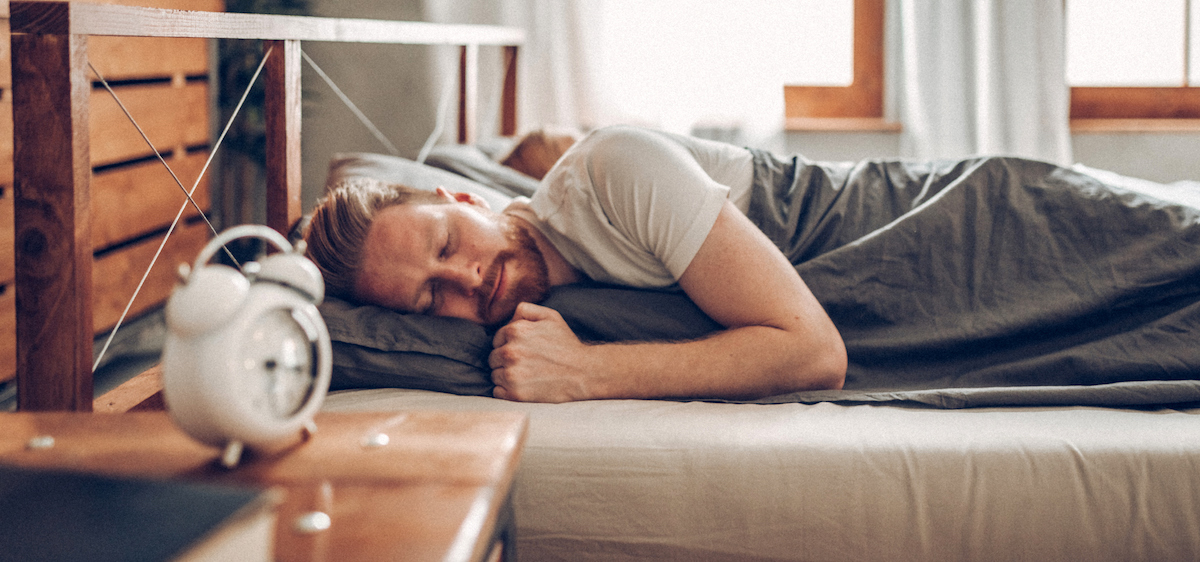<< Back
Here’s What Even Moderate Light While Sleeping Can Do to Your Body

March 17, 2022
Even before the war in Ukraine, 56 percent of Americans acknowledged pandemic-related sleep disturbances that experts call COVID-somnia. Of those reporting sleep difficulties in a survey commissioned by the American Academy of Sleep Medicine, 57 percent said they were having trouble either falling asleep or staying asleep.
Maybe it’s time to get back to sleep basics.
“If you’re struggling with sleep right now,” says Dr. Christina Abavana, a sleep medicine specialist with Hartford HealthCare’s Ayer Neuroscience Institute at St. Vincent’s Medical Center in Bridgeport, “you can try practicing good sleep hygiene. Make sure you’re going to bed around the same time. Make sure you sleep in an environment that’s clean and quiet and cool. And make sure you’re avoiding television in the bedroom, gadgets and excess stimulation.”
Light, specifically, is the excess stimulation to avoid. Even a moderate amount of ambient light instead of a dim lighting can harm your cardiovascular function while sleeping and increase your insulin resistance the next morning, according to a new Northwestern University study published in the Proceedings of the National Academy of Sciences.
Researchers said up to 40 percent of people sleep with a television or light on in the bedroom, citing prevalence of artificial light such as an LED or light from outside the home, particularly in urban areas. To test the effects, study participants slept in a room with either 100 lux (moderate light) or 3 lux (dim light) during a single night. Those exposed to moderate light experienced a higher alert state, causing an increased heart rate and blood flow and an increase in the force of heart contractions.
The body responds similarly to light during the daytime, activating the sympathetic nervous system that produces the heightened awareness that’s also known as the body’s “fight or flight” system.
“We know that when you’re not sleeping sufficiently or have a sleep disorder that negatively impacts the quality of your sleep, you suffer for it,” says Dr. Abavana. “And this is simply because there are specific, important functions that occur when we sleep that don’t occur when we’re awake.”
The Northwestern researchers suggested these lighting tips:
- Turn off all lights. If you must have lighting, use a dim light close to the floor.
- Use an amber or a red-orange light, which is less stimulating for the brain. Don’t use a white or blue light.
- Use blackout shades to minimize outdoor light. Otherwise, try an eye mask. If the morning sun shines in your face, move your bed.
“We need sleep to help our body fight disease,” sayd Dr. Abavana, “help our immune system and fight disease.”
And how much sleep in dim light?
“It varies,” says Dr. Abavana, “but most of us require anywhere from seven to nine hours of sleep every night. . . . A good way to determine how much you require is to observe how you feel after a night’s rest. If you feel refreshed, if you feel that you’re able to function properly after seven hours of sleep per night, then that’s your sleep duration requirement.”